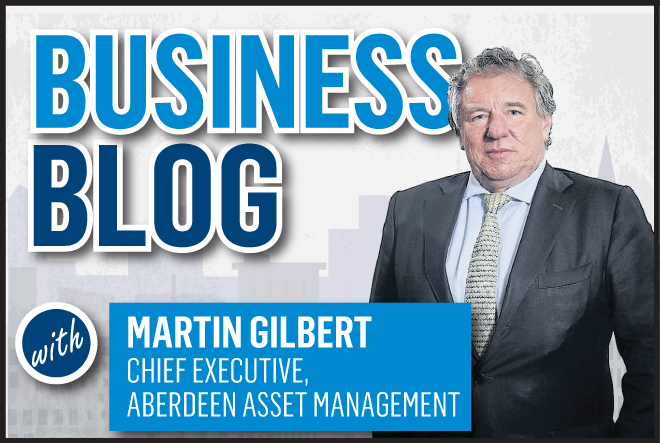It’s a welcome development to see the Investment Association (IA), whose members manage funds totalling more than £5.5trillion, publish a Productivity Action Plan identifying the barriers to long-term investment and outlining how our industry can help businesses drive sustainable returns.
The plan was drawn up by an industry steering committee made up of CEOs and senior fund managers of some of the largest UK investors, including Billy Gilmore from Aberdeen Asset’s private equity team. It highlights the central issues by putting productivity in tandem with long-termism.
Last year UK Business Secretary Sajid Javid, who said that “boosting productivity is the economic challenge of our age”, launched the Government’s productivity plan Fixing the Foundations. Now the Investment Association has produced its own Action Plan.
There’s no doubt the UK is facing a productivity problem. Data from the Office for National Statistics (ONS) last September showed output per hour from UK workers in 2014 fell to 20 percentage points below the average for the rest of the G7 nations. Britain lagged behind France, Germany and the US by 32-33 percentage points.
Clearly we’re still feeling the effects of the downturn. But the productivity situation is complicated by the unevenness of the picture in different sectors.
A report by The Economist last year found that in the transport-manufacturing industry – plants building cars, planes and trains – workers were producing 56% more in an hour than they did in 2009. In contrast, hourly output in the chemicals and pharmaceuticals sector had fallen by 11% over the same period.
That is the confusing situation which commentators, including a Staff Working Paper by the Bank of England, have called the “productivity puzzle”. I’m not sure that’s a very helpful term. Fund managers deal in solutions, not puzzles, and there has been enough detailed analysis of the dip in productivity to enable us to identify ways of overcoming it.
The IA Action Plan proposes five key remedies. It wants company reporting enhanced for efficient capital allocation, improved investor stewardship and engagement, simplification of behavioural incentives and the investment chain in alignment with clients’ long-term objectives, development of efficient and diverse capital markets, and steps to overcome tax and regulatory impediments to the provision of long-term finance.
Last October I wrote in this Business Blog: “We should educate investors to stop being fixated on quarterly results that are often a misleading snapshot”… So it was gratifying to see the Action Plan’s recommendation: “Issue a Public Position Statement calling for listed companies to cease reporting quarterly and refocus reporting on a broader range of strategic issues.”
At the launch of the plan, the Commercial Secretary to the Treasury Lord O’Neill said: “Speaking on behalf of the Government and the Chancellor, we very much welcome the commitments that your report outlines: the discouraging of quarterly reports within it…” And on the broader front he added: “If you read carefully the amount of words that we put into the Budget document about what I loosely call ‘long-termism’, they are on the increase, which is a deliberate sign of the importance which we attach to it.”
Considering those remarks and the consistent drumbeat of the long-termism theme, both in the Action Plan and in the Budget, I think you would have to be a pretty extreme pessimist not to conclude we have turned a corner in discrediting the culture of “early exit” investment.
The plan rightly describes the asset management industry as “the critical link between savers and the real economy”. Investors provide the necessary fuel to drive the economy, but if the supply of investment is unreliable then productivity will stall.
It has been a long march from the debacle of 2008, through the wake-up calls sounded in the reports by Professor John Kay and Sir George Cox, to a growing consensus involving the asset management industry, wider business and government on the need for long-term perspectives in investment. If we embrace that broader vision, productivity need not be a puzzle any longer.
